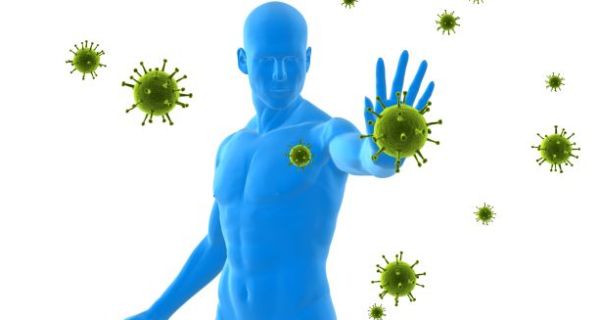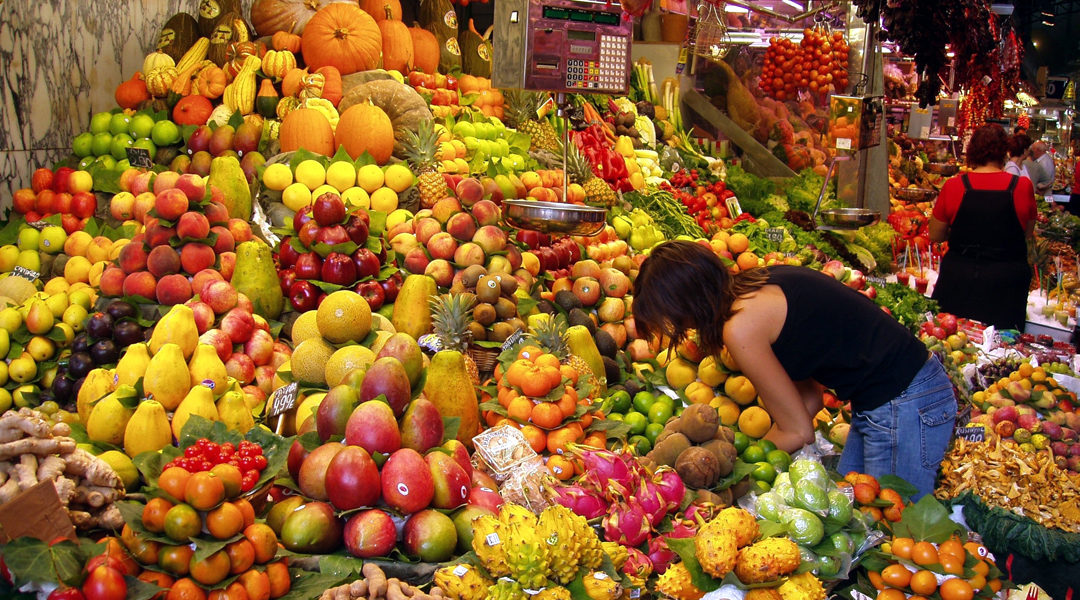There is a lot of vitamin C in fruit, that is generally known. But which vitamins are there any more? What are they in and what do you need them for?
Thirteen vitamins
There are thirteen different vitamins . Four vitamins that are soluble in fat and nine vitamins that are soluble in water. The fat-soluble vitamins are A, D, E and K. They can be stored in your body.
The water-soluble vitamins are B1, B2, B3, B5, B6, B8, B11, B12 and vitamin C. Your body can not hold these substances well and therefore you have to supplement them daily.
The amount of vitamins you need depends on your personal situation. For example, your age, illness and pregnancy affect you.
Vitamin A
Vitamin A ensures that your immune system functions properly. In addition, vitamin A is good for your skin, hair and gums and prevents night blindness. You extract this vitamin from fish, liver, dairy products (such as custard, yoghurt) and low-fat margarine.
Vitamin B1
In the past, people thought that only one vitamin B existed. But there appear to be several B vitamins that partly depend on each other for their effect. B1 causes the burning of carbohydrates. This gives your body energy. It also plays a role in the conduction of nerve impulses. In case of a shortage you will suffer from fatigue, depression and a lack of appetite. B1 is mainly in pork, grain products and legumes.
Vitamin B2
Vitamin B2 is necessary for proper digestion. Furthermore, it keeps your skin and hair healthy. B2 is found in dairy products, meat, vegetables, fruit and grain products. Shortages of this substance are rare.
Vitamin B3
Vitamin B3 helps your body get energy from sugar, fat and protein. In addition, it plays a role in the functioning of the nervous system. B3 also ensures healthy skin. Good sources for vitamin B3 are meat, fish, nuts, grain products, vegetables and fruit. Deficits are not common.
Vitamin B5
B5 is in almost all foods, so you do not have to worry that you get too little from it. Vitamin B5 ensures that your body can break down proteins, fats and carbohydrates. It stimulates the production of anti-stress hormones and antibodies.
Vitamin B6
Vitamin B6 is important for your digestion and resistance. Furthermore, it helps in the production of red blood cells, it is an indispensable substance for your nervous system and it keeps your sex hormones in balance. B6 would therefore alleviate the symptoms of premenstrual syndrome (PMS). Anemia, skin problems and reduced resistance are symptoms of a deficiency of B6. You get this vitamin mainly from meat, fish, egg, legumes, potatoes and wholemeal products.
Vitamin B8
With vitamin B8 you keep your skin and hair healthy. In addition, B8 stimulates the production of fatty acids. It is found in eggs, milk, soy, nuts, chocolate and cauliflower. A deficiency of vitamin B8 is not very common.
Vitamin B11 (folic acid)
Vitamin B11 you probably know under the heading folic acid. This substance is very important in the production of blood and DNA material. B11 also protects against cardiovascular diseases. If you want to become pregnant, you have to take extra folic acid. This reduces the chance of a child with an open back. A deficiency of folic acid can lead to fatigue, loss of appetite, weight loss and memory problems. This vitamin is mainly in green vegetables, fruit and whole grain products.
Vitamin B12
Vitamin B12 only occurs in foods of animal origin, such as meat and dairy. It is necessary, among other things, for the production of red blood cells and for a well-functioning nervous system. Especially older people can suffer from a shortage of B12 . This then leads to memory problems.
Vitamin C
Vitamin C is good for your resistance. But you also keep healthy teeth, bones and blood vessels and it slows the aging process. Vegetable, fruit and potatoes are the most important sources. Note: oranges and kiwis contain much more vitamin C than apples, for example. Swallow extra vitamin C if you have a cold, have little energy and badly heal wounds.
Vitamin D
Sunlight is the most important source of vitamin D. About two thirds of the amount of vitamin D that you need per day is created in this way. The rest comes from the diet. Vitamin D mainly occurs in foods of animal origin. These foods, however, generally contain very little vitamin D. An exception to this are fatty fish species (eel, salmon and mackerel, for example). These contain slightly more vitamin D. In the Netherlands vitamin D is added to margarine, low-fat margarine and baking and frying products. A vitamin D deficiency is common. It can lead to bone loss. Research shows that a deficiency of this vitamin also plays a role in the development of certain types of cancer, cardiovascular diseases and diabetes.
People over the age of 50 are advised to take extra vitamin D, because the skin is no longer able to make the vitamin. The same applies to people with tinted or dark skin. Children up to and including 3 years also need extra vitamin D, because their skin is not yet sufficiently developed to make this vitamin. Pregnant women and women who are breastfeeding also need extra vitamin D.
Vitamin E
Vitamin E keeps the skin, nerves, muscles, red blood cells and heart healthy. It also helps to prevent cardiovascular disease. In terms of food you should think of vegetable oil, nuts, grain products, muesli and sesame seeds. Serious symptoms due to a vitamin E deficiency are very rare.
Vitamin K
Vitamin K finally you need especially for blood clotting. It is mainly produced in your large intestine. You can also extract this vitamin from broccoli and spinach. Children who are breast-fed will require 150 micrograms of vitamin K every day for the first three months. Complete infant formula already contains enough vitamin K.



